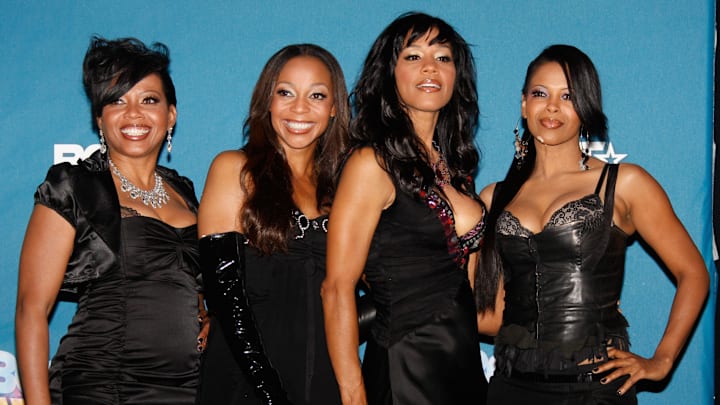R&B girl groups hold a vital place in music and culture, serving as powerful voices of empowerment, unity, and representation. They bring unique storytelling to life, blending harmonies and heartfelt lyrics that resonate across generations. These groups often tackle themes of love, heartbreak, and self-worth, providing emotional soundtracks for their listeners.
Beyond the music, they break barriers, challenge stereotypes, and inspire young women by showcasing strength, talent, and individuality. Their influence transcends entertainment, shaping fashion, dance, and societal conversations while paving the way for future artists to thrive. R&B girl groups are more than performers—they are cultural icons whose legacies celebrate sisterhood and the enduring power of collective artistry.
With versatility, evolution, influence on future artists, connecting emotionally with fans, pioneering achievements, chemistry/group dynamics, cultural/social influence, impactful lyrics/themes, signature sounds/vocals, memorable hits, timeless music, relevancy, and longevity, the following girl groups have and continue to leave an indelible mark on music across generations.
Music would not be the same without these R&B girl groups
Xscape
This Atlanta-based quartet of Kandi Burruss, Tameka “Tiny” Harris, and sisters LaTocha and Tamika Scott emerged in the early 1990s. Their gospel roots and raw talent gave them a distinct edge in the R&B landscape.
Xscape’s hits like“Understanding” and “Who Can I Run To” became staples of '90s R&B. Their rich harmonies and emotionally charged ballads resonated deeply with fans, while their ability to shift from soulful slow jams to club-ready tracks showcased their versatility.
The Supremes
The Supremes, led by Diana Ross, were a cornerstone of the Motown era. Mary Wilson and Florence Ballard, alongside Ross, formed a trio that became synonymous with polished performances and crossover appeal. The Supremes were trailblazers, breaking racial barriers in the music industry and becoming global superstars.
With 12 No. 1 singles, including“Where Did Our Love Go,” "Baby Love," and “You Can’t Hurry Love,” they paved the way for countless girl groups and established Motown as a cultural force.
En Vogue
This Oakland-based quartet (later trio) was known for their sophistication, style, and unmatched vocal prowess. Cindy Herron, Terry Ellis, Maxine Jones, and Dawn Robinson delivered powerful performances that bridged old-school soul with modern R&B. En Vogue’s “Funky Divas” era produced hits like “My Lovin’ (You’re Never Gonna Get It)” and “Free Your Mind,” addressing societal issues with anthemic energy. With over 30 million records sold, they’re celebrated for their timeless appeal and vocal excellence.
SWV (Sisters With Voices)
Cheryl “Coko” Gamble, Tamara “Taj” Johnson, and Leanne “Lelee” Lyons formed SWV in the early '90s, blending gospel-inspired vocals with smooth R&B production. Their emotional delivery and relatable lyrics made them fan favorites. SWV’s debut album, "It’s About Time," went multi-platinum thanks to classics like “Weak” and “I’m So Into You.” They were known for their vocal harmonies, effortlessly balancing sensuality and vulnerability, and their influence is still felt in contemporary R&B.
TLC
Comprising Tionne “T-Boz” Watkins, Lisa “Left Eye” Lopes, and Rozonda “Chilli” Thomas, TLC dominated the '90s with their groundbreaking mix of R&B, hip-hop, and pop. Their bold style and socially conscious lyrics made them pioneers.
TLC sold over 85 million records worldwide, making them one of the best-selling girl groups in history. Hits like “Creep” and “Unpretty" addressed self-esteem, empowerment, and societal issues. Despite the tragedy of Left Eye’s passing, their music continues to resonate deeply.
Destiny's Child
Originally formed in the late '90s, Destiny’s Child started as a quartet before becoming the iconic trio of Beyoncé Knowles, Kelly Rowland, and Michelle Williams. They epitomized female empowerment and resilience, delivering unforgettable anthems that tackled themes of independence, self-worth, and relationships.
Their hits like “Independent Women Pt. 1” and “Bootylicious” topped charts worldwide. With over 60 million records sold, multiple Grammy Awards, and a cultural influence that transcended music, Destiny’s Child became a blueprint for modern girl groups. Beyoncé’s subsequent solo success has only magnified their legacy.
These groups are more than just chart-toppers; they shaped the sound and culture of R&B, influenced fashion, addressed societal issues, and created timeless music that continues to inspire artists and listeners alike. Each group brought something unique to the genre, leaving behind a legacy of artistry and empowerment.
